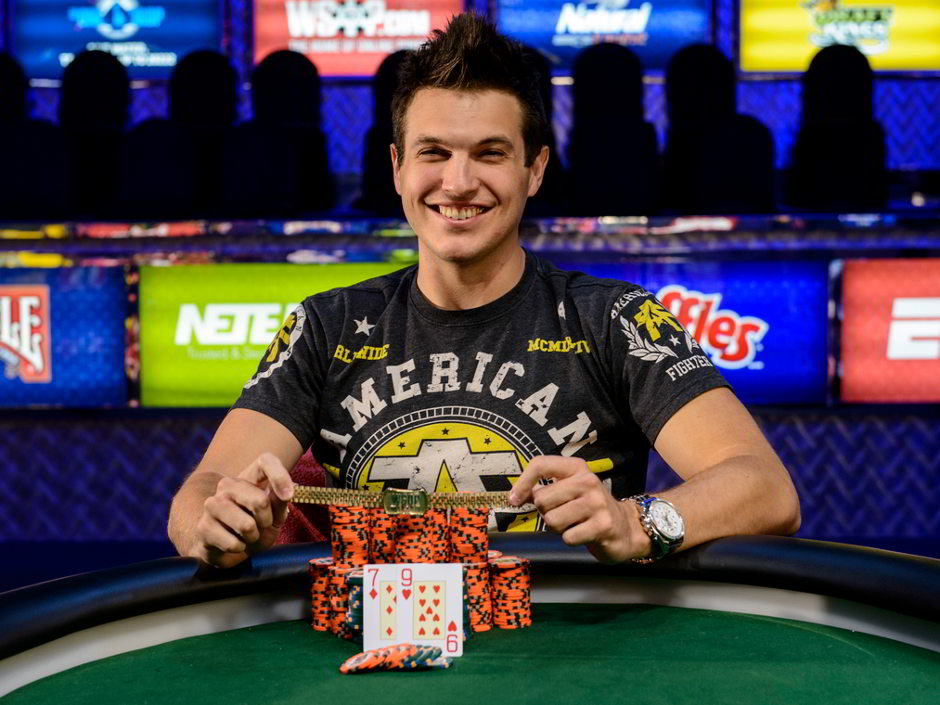Doug Polk Poker
The heads-up duel between Doug Polk and Daniel Negreanu has become a touchstone for arguments about old-school and new-school approaches to poker. One topic come sprinting to the forefront has been the idea of using “solvers.”
The latest tweets from @DougPolkPoker. The latest tweets from @DougPolkPoker. Doug Polk is walking away with $1.2 million from his poker challenge match with Daniel Negreanu. Polk won $255,722 on Wednesday as they reached the agreed-upon total of 25,000 hands of heads-up No. 84.8k Followers, 73 Following, 1,001 Posts - See Instagram photos and videos from Douglas K Polk (@dougpolkpoker).
The average online poker player may not even know what a solver is. Learning a bit more about this new, high-tech part of the game offers some insight into how Team Polk and Team Negreanu battle it out behind the scenes.
What is a poker solver?
A solver is a software program that helps players identify the most optimal play in a given situation. The players have to input situations themselves, of course, but the program can indicate what they should have done. This is regardless of what a player actually did.

Now, within that definition is another term to address. The word “optimal” is specifically referring to the game theory optimal (GTO) decision.
GTO goes beyond the notion that there is one correct way to play a given situation. Instead, along with a range of hands that a player should play in a certain scenario, GTO play involves mixing up the frequency of decisions for each hand in a given range.
That level of complexity is, at the least, untenable to master and implement while in the middle of the hand. However, producing the “correct” result is no problem for today’s technology.
Solvers, in fact, go a step further in this regard. Players can use solvers to analyze opponents’ games and identify tweaks to their ranges and frequencies that help exploit weaknesses.
Befitting a concept with the word “theory,” GTO is the theoretical notion of the perfect game a person can play. Obviously, no human being can ever achieve perfection, but it’s a good goal to pursue.
Solvers can help in that regard. By analyzing historical situations, a player can discover and begin anticipating the optimal way to react in similar situations.
What do top poker pros think about solvers?
Obviously, opinions vary about solvers, GTO, and their efficacy within poker’s elite. It’s likely that no player will make a more definitive statement than the godfather of poker himself, Doyle Brunson.
After a month of observing the Polk-Negreanu showdown, Brunson took to Twitter with his views on the matchup.
I think the match between Polk and Daniel is the end for NLH. I had no idea this new way was so strong. Any player would be nuts to play unless he knows the info. Never thought I would say that.
— Doyle Brunson (@TexDolly) November 27, 2020

The responses were polarizing, to be sure. Polk himself agreed with the sentiment and said this trend would continue into other poker games.

Poker pro and Run It Once founder Phil Galfondconcurred. He said solvers are “the next tool” in the progression from learning equities by viewing hands to equity calculators and PokerTracker.
However, Galfond also cautioned against Brunson’s dire conclusion. Since everyone has access to the same information, he said, it’s still necessary to play poker well.
Other poker pros respond to growing use of solvers
USPoker reached out to other notable poker pros to get their views on solvers. Chance Kornuth has won two World Series of Poker bracelets and founded poker coaching and training site Chip Leader Coaching.
While Kornuth believes solvers can help in certain ways, he’s not convinced in their infallibility.
“My experience with solvers has been pretty mixed,” he said. “I have learned valuable information on range interaction, combo selection, and frequencies. (However), solvers show what is optimal in a scenario that will never actually exist in real life, so it is never actually optimal. Without understanding the basis of a solver’s conclusions, they may lead us astray.”
Poker vlogger Andrew Neeme posts his (mostly) live poker experiences on his Youtube channel and has 153,000 subscribers. He hasn’t used a full solver. However, Neeme has worked with Run It Once’s Vision GTO solver, with fewer bells and whistles than the big names in the industry.
While the strategic aspect of poker is crucial these days, it’s not what keeps Neeme involved in the game.
“If you aren’t using a math basis to study poker in the modern era, you’re falling behind quickly,” he said. “I haven’t spent a ton of time with (solvers), though.
“For me, the game theory side of poker was never a big part of what enticed me into the pursuit. Without in-game situations that I want to dig into, it gets really dry for me, really fast.”
What are the best solvers, and how do I get one?
There are plenty of great options for solvers in the market. Every major solver is available to players with an Internet connection and a computer.
Unfortunately, phones and tablets are likely not going to be able to run many of the top solvers. The amounts of data and computing power involved are too great for handheld devices at this moment.
Doug Polk Email
The first solver that must be mentioned is also the progenitor for all solvers. PioSOLVER was nothing short of a revolution when it debuted in 2015. It remains the most popular selection for players seeking GTO analysis to this day.
Doug Polk Poker Lab
Other top solvers include GTO+, MonkerSolver, and Simple Postflop. Any of these options would suffice for the vast majority of players.
There is also a limited option for those who would rather use a smartphone. The best option is likely going to be DTO (Apple and Android), a solver-like app from German pro Dominik Nitsche.
Doug Polk Poker Youtube
The app presents different scenarios and encourages players to make the GTO decision.
For Pot-Limit Omaha specialists, there is Vision, the software that Neeme mentioned. The Run It Once product is available with a variety of levels of features and options.
Good things aren’t free
Though the software programs listed above are top-notch, there is one aspect that may give a bit of pause. None of the top solvers offer much functionality for free.
There might be a very “lite” version of the software available. But its features are going to be extremely limited and ineffective for more than cursory examinations.
Those who want or need something more are going to have to come out of pocket. In some cases, the costs are fairly significant.
Doug Polk Wiki
The least expensive of the options described above is, unsurprisingly, the least-realized. DTO is a fine option, but it’s not a true solver. It is playable for free, but in-app purchase options can push the price anywhere from $10 to roughly $270.
Of the true solvers, the least expensive option is GTO+. A single license for that solver is $75, and a second license is available for an additional $40.
The other three options will cost at least $249 to activate. It’s possible to spend more than $1,000 for one of these programs. Whether it’s worth the expenditure is a different question for everyone.
The bottom line
The most important thing to remember is that while solvers can be an effective tool, they’re not the silver bullet. For instance, PioSOLVER only works to analyze heads-up situations. This limitation isn’t a deal breaker, since heads-up situations form the majority of the spots poker players encounter.
However, solvers don’t have the ability to “solve” poker as much as they might seem to. For lower limit players, it’s probably better to play in a manner taking advantage of opponents’ mistakes. After all, GTO play is a rarity at those levels.
“Solvers are not a must-have for serious poker players,” Kornuth said. “There are plenty of top players who rarely use them, and unless you are playing the same group of players at an extremely high level, true optimality will likely be significantly different than a GTO solution.”
For some, using a solver can also boil out a lot of the fun that comes with playing poker. Even professionals don’t want to spend all their time running simulations. However, despite his reluctance to use them, Neeme doesn’t dismiss their value.
“I do think that the time I’ve spent with (solvers) has helped my game,” he said. “You pick up on some trends that the solver has figured out as ‘best’ and can often induce why that is. It’s tough to put a dollar value on these improvements. But it has definitely given me some clarity as to how poker should be approached, strategically.”
In short, solvers are a tool that serious players should consider having in their toolkit. However, they aren’t an automatic device for winning every game.
As Galfond mentioned in his Tweet, “you still have to play poker!”